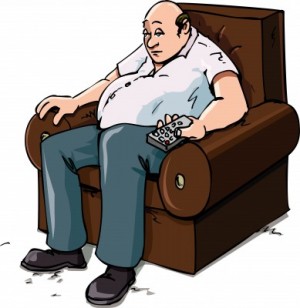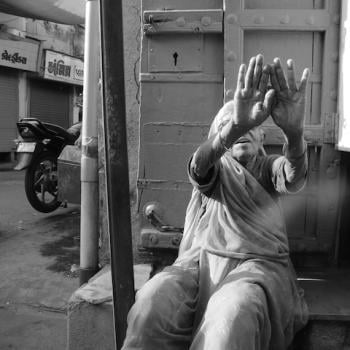 I had a post brewing in my brain about my mother and her unlived life when I saw this New York Times review of a book called “Missing Out: In Praise of an Unlived Life.” Many of us as children imagined that we were fairy princesses or dashing knights, stuck in a fairy tale from which we will soon awake and live the life to which we are entitled. Evil parents are truly stepparents, and someday soon our “real” parents, the kings and queens, will rescue us and we will live happily ever after. For my mother, who died just before Christmas, this fantasy was a reality that lasted throughout her life. She locked herself into a tower of her own laziness and refusal to create actions that would effect change in her life, and waited for the fairy tale to rescue her. My mother’s astrological chart showed a Moon/Chiron conjunction which reveals a deep emotional wound from which we never really heal, but which becomes our teacher as, ideally, we release the wounds from the past and move into a transformed future. She also had a grand trine in water signs, and when people say “aren’t grand trines good?” I always use my mother as an example. Because grand trines create ease and flow in one’s life, but they also help us to avoid the kind of crisis that forces us to take action and make changes. As someone who works with people to help transform their lives and manifest their dreams, this frankly drove me nuts. From the time she moved to live closer to me in 2000 until the day she died I worked hard to overcome my desire to change her – to make her live the kind of life I wanted her to have. “Your way is not may way,” she would say. Of course I thought she was simply wrong. I have worked very hard to overcome my own wounds and create a wonderful life, and I believe that everyone should have joy and satisfaction and a sense of purpose and accomplishment. My mother, on the other hand, seemed to prefer the imagined life to the real one. The idea of the dog was better than the actual dog. The idea of the daughter was better than the real one. The idea of the vacation was better than the reality, which was then canceled over and over. So I found this review interesting, and disturbing:
I had a post brewing in my brain about my mother and her unlived life when I saw this New York Times review of a book called “Missing Out: In Praise of an Unlived Life.” Many of us as children imagined that we were fairy princesses or dashing knights, stuck in a fairy tale from which we will soon awake and live the life to which we are entitled. Evil parents are truly stepparents, and someday soon our “real” parents, the kings and queens, will rescue us and we will live happily ever after. For my mother, who died just before Christmas, this fantasy was a reality that lasted throughout her life. She locked herself into a tower of her own laziness and refusal to create actions that would effect change in her life, and waited for the fairy tale to rescue her. My mother’s astrological chart showed a Moon/Chiron conjunction which reveals a deep emotional wound from which we never really heal, but which becomes our teacher as, ideally, we release the wounds from the past and move into a transformed future. She also had a grand trine in water signs, and when people say “aren’t grand trines good?” I always use my mother as an example. Because grand trines create ease and flow in one’s life, but they also help us to avoid the kind of crisis that forces us to take action and make changes. As someone who works with people to help transform their lives and manifest their dreams, this frankly drove me nuts. From the time she moved to live closer to me in 2000 until the day she died I worked hard to overcome my desire to change her – to make her live the kind of life I wanted her to have. “Your way is not may way,” she would say. Of course I thought she was simply wrong. I have worked very hard to overcome my own wounds and create a wonderful life, and I believe that everyone should have joy and satisfaction and a sense of purpose and accomplishment. My mother, on the other hand, seemed to prefer the imagined life to the real one. The idea of the dog was better than the actual dog. The idea of the daughter was better than the real one. The idea of the vacation was better than the reality, which was then canceled over and over. So I found this review interesting, and disturbing:
“Missing Out,” Phillips’s 17th book, is his most poetic, paradoxical, repetitive and punning yet; he doesn’t argue in a linear fashion but nestles ideas within ideas, like Russian dolls. … What’s at stake throughout these essays is how we understand the “lives we could be leading but for some reason are not.” Phillips’s clinical practice (he sees patients four days a week and writes on Wednesdays) has shown him that “we live as if we know more about the experiences we don’t have than the experiences we do have.” He refers to these parallel or shadow lives as our “unlived lives,” and says that many of us “spend a great deal of our lived lives trying to find and give the reason” that “they were not possible. And what was not possible all too easily becomes the story of our lives.” It’s hard not to find this embarrassingly familiar: the unloved lovers, the unsucceeded successes. We’re so sure of what our unlived lives would have been like that we feel guilty for not living them — for not living up to our potential. But “where did we get our picture of this potential from?” Phillips asks. We live in an age in which many of us no longer feel rooted in traditional systems of belief; we know we are nothing special — “on a par with ants and daffodils” — and so seek our satisfaction in the perpetual present of consumer capitalism, in which “knowing ourselves” means “simply knowing what we want to have.” … With Phillips, we feel our wished-for satisfactions (our madness?) listened to and killed, and yet not really die. And he offers us another kind of hope too — not the consumerist one, that all our dreams may come true, but the hope that our frustrations might lead us out of the fantasy world in our minds and into an engagement with what is. After all, “the only satisfactions available are the satisfactions of reality, which are themselves frustrating.”
While the idea that we create our own reality reached the masses back in the 1800s with the New Thought movement, it really erupted into the mainstream under the influence of Pluto’s travel through Sagittarius. Sagittarius is, after all, the sign of faith and optimism, and when Pluto’s transformational force careened through that sign the idea that we can create our reality and achieve all of our desires reached a feverish pitch. But that doesn’t mean it’s wrong. After reading this review I wanted to know more about Adam Phillips. Why was he so untrustful of his dreams? Why does he insist that the soul’s desires, which in my belief system are seeds planted by our higher self to inspire and motivate us towards our purpose, are so dangerous? Adam Phillips (born September 19, 1954, time unknown, in England) has the Sun in Virgo, a sign which is famously suspicious of anything which originates outside the material world. But more telling, his Sun squares his Moon which suggests a split between his emotional world (Moon) and the conscious mind. With Jupiter (expansion and faith) conjunct Uranus (innovation and new ideas) he is a brilliant thinker, but that conjunction is opposed by Chiron which bestows a fearful attitude towards new ideas. Interestingly, Wikipedia calls him a “maverick” in his field, but this review of his book suggests that he himself is fearful of his own inner maverick. In another interview Phillips is quoted:
“I’m not on the side of frustration exactly, so much as the idea that one has to be able to bear frustration in order for satisfaction to be realistic. I’m interested in how the culture of consumer capitalism depends on the idea that we can’t bear frustration, so that every time we feel a bit restless or bored or irritable, we eat, say, or we shop. “It’s only in an initial state of privation that you can begin to have thoughts about what it is you might want, to really imagine or picture it. It’s very difficult to know what we’re frustrated by. In making the case for frustration I want to make it more interesting, such that people can talk or think about it in different ways.”
While I disagree with the idea that satisfaction has to be realistic, there is no doubt that without initial frustration very few of us find the motivation to create the changes that are desired in our lives. But our desires go so far beyond what we WANT in the sense of consumer capitalism. Our desires include a longing for connection with others and community. An urge to leave behind a corporate job to provide service and healing to others. Creative inspiration that bubbles out of us and yearns for an outlet. To me, frustration is the voice that says “This thing that you are doing is not working for you. Now change it. ” My mother lived with frustration every day – the frustration that her life gave her very little joy, happiness or satisfaction. All it takes is one small step to make a change. Let’s not find excuses to make inertia into a positive attribute as this article suggests.
[related_posts limit=”5″ image=”50″]














